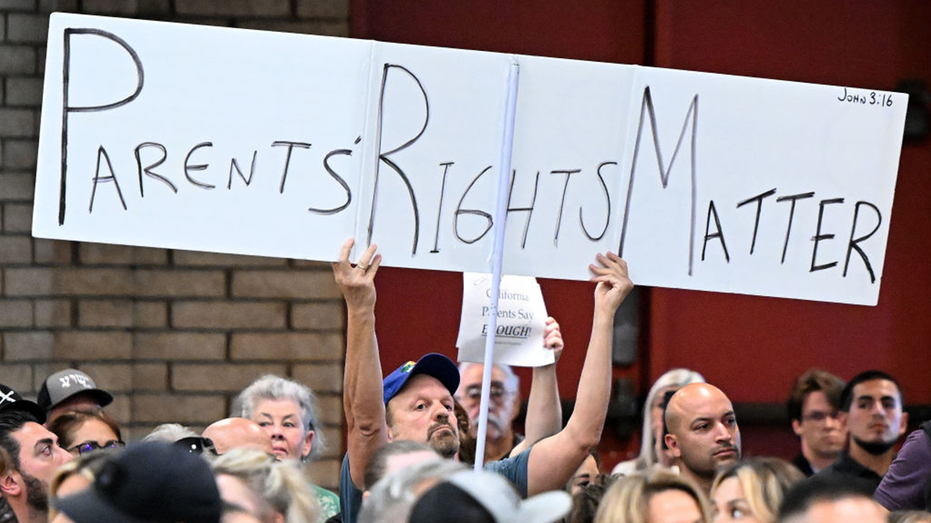Big Tech’s top leadership faced brutal questioning from senators on both sides of the aisle Wednesday over the future of the industry’s regulation related to combating online child sexual exploitation.
CEOs of Meta, TikTok, X, Snap and Discord testified on Wednesday before the Senate Judiciary Committee in a hearing that centered around the question of what liability and responsibility the platforms should bear if it knowingly or unknowingly hosts harmful content, specifically targeting or exploiting minors.
Behind the witnesses sat an audience full of family members who lost loved ones after they unknowingly bought fentanyl off social media and died, or were victims of eating disorders, self-harm and suicide because of harmful social media content.
Lawmakers from both parties seemed to be marching to the beat of the same drum, emphasizing that they think congress should pass laws that would lift certain liability shields of the companies.
“We live in an America in 2024 where there is no regulatory body dealing with the most profitable, biggest companies in the history of the world. They can’t be sued. And there’s not one law on the book that’s meaningful for protecting the American consumer,” ranking member Lindsey Graham, R- S.C. told Fox News Digital.
The Judiciary Committee has already unanimously passed five bills that would place more safeguards on social media applications like the ability to opt-out of algorithms geared toward addicting users, and expand the federal civil cause of action for child victims to sue the platforms that promoted or facilitated exploitation.
But the lawmakers pressed the CEOs on why their companies wouldn’t wholly support the measures.
GRAHAM TELLS ZUCKERBERG, ‘YOU HAVE BLOOD ON YOUR HANDS,’ AUDIENCE CHEERS
“Instagram recently announced that it’s going to restrict all teenagers from access to eating disorder material, suicidal ideation themed material, self-harm content. And that’s fantastic. That’s great. What’s odd, what I’m trying to understand, is why it is that Instagram only restricts its access just to sexually explicit, but only for teens ages 13 to 15. Why not restricted for 16 and 17 year olds as well?,” Sen. Mike Lee, R-Utah pressed.
“Senator, my understanding is that we don’t allow sexually explicit content on the service for people of any age,” Mark Zuckerberg, CEO of Meta, Instagram’s parent company, answered.
“How is that going?” Lee replied, prompting the audience to laugh.
“Uh, you know, our prevalence metrics suggest that — I think it’s 99% or so of the content that we remove. We’re able to identify automatically using an AI system. So I think that our efforts in this, while they’re not perfect, I think are industry leading,” Zuckerberg said.
Lina Nealon, vice president at the National Center on Sexual Exploitation, said the hearing revealed “an astounding lack of true remorse from tech CEOs for the children who have been traumatized and have even died as a result of their inherently dangerous platforms.”
“The elephant in the room,” she said, “was CDA Section 230, tech’s current liability shield that has protected tech, not those who have been victimized by sexual abuse and exploitation online.”
“Section 230 is the single greatest enabler of online sexual abuse and exploitation. We were encouraged that senators appear to recognize the harm Section 230 has enabled, and we hope to see this change,” she said.
GOP SENATOR URGES SCOTUS TO REIN IN BIG TECH’S CONTENT CENSORSHIP THAT DEFIES ‘LOGIC’
The bills that could possibly bring that change include the EARN IT Act, STOP CSAM Act, Preventing Child Sex Abuse Act, the Kids Online Safety Act; Project Safe Childhood Act, REPORT Act and the Child Safety Modernization Act.
Senator Marsha Blackburn, R-Tenn., a co-sponsor of the Kids Online Safety Act told Fox News Digital following the hearing that in her view it “is clear that Big Tech is prioritizing profit over the wellbeing of our children.”
“These executives have failed to take action and are sitting idly by as our children are dying from fentanyl and being trafficked online,” she said, adding that Congress should pass her bipartisan bill.




